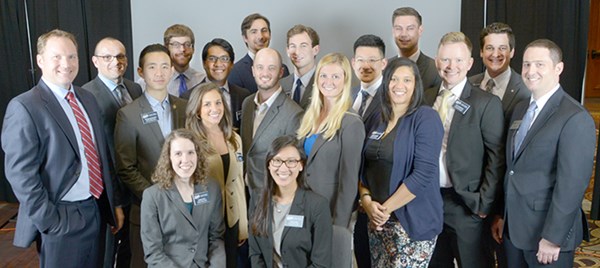Generally, the association that medical students make with conferences is research. However, I'm here to tell you that attending an emergency medicine conference can mean so much more than a poster presentation. They can provide information about the specialty and the application process, a sense of camaraderie with fellow medical students, networking, and opportunities to become more involved in organized medicine.
Personally, my experience as a medical student interested in emergency medicine was dramatically changed because I had the opportunity to attend a conference as a first-year medical student. It has made me not only a better student, but also a better applicant.
First and foremost, conferences are a great source of information regarding the application process. During the past few years, this has been particularly critical as emergency medicine has increasingly become a more competitive specialty. As such, application advice is constantly in flux. It was also at my first conference where I learned the FOAMed (Free Open Access to Medical Education) movement in social media is dominated by emergency physicians. I frequently took advantage of these excellent resources during my clinical rotations.
Often, there are more medical students than open leadership positions at school EMIGs, so students miss the chance to be involved. Going to conferences can offer an alternate means of leadership opportunities outside of medical school. Not only are there national opportunities like the EMRA Medical Student Council, but many state chapters of ACEP are starting to develop their own state-level medical student councils. If you are looking for something with lighter responsibilities, you might consider joining a division or committee within ACEP, which allows you to be as active (or inactive) as you want to be.
With improved resources and better access to information, most of what I have mentioned so far could probably be discovered in the comfort of your home with a thorough internet search and the advice of an above average mentor. What can't be reproduced through technology is the opportunity to network with people face-to-face. Conferences will give you the opportunity to feel out programs by interacting with their residents and faculty at residency fairs and social events. I decided to do an away rotation at an institution that I never would have considered had it not been for a positive interaction with their residents and faculty at a residency fair.
Lastly, my personal favorite reason to come to conferences is the tremendous sense of camaraderie among medical students who are all going through the same process. This is one of the main reasons I decided to apply for a national officer position on the EMRA Medical Student Council. I wanted to be a part of fostering community among EMIGs across the country through sharing knowledge, experiences, and opportunities. This type of student-to-student interaction has inspired real action! For example, in my home state of Texas, the state chapter conference had its inaugural medical student SimWars this year after hearing about the amazing benefits and experiences the students at the Baylor College of Medicine had with student-led medical simulations. This had led to the formation of new teams across the state at other medical schools.
Without a doubt, there is much more to conferences than just research. Hopefully I'll see you at the next national conference!



